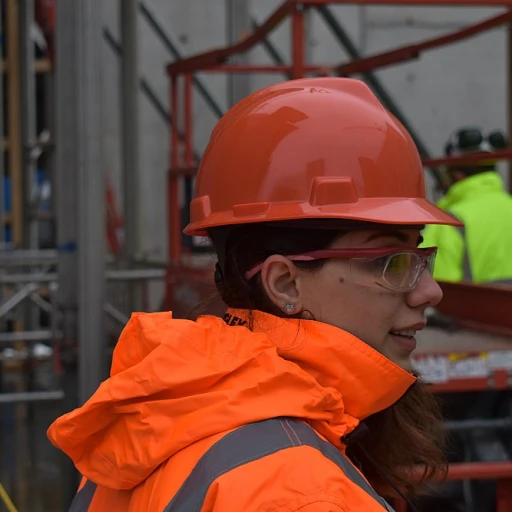Understanding the CRNA Role
The Nurse Anesthetist Role Explained
For aspiring CRNAs, understanding the role of a Certified Registered Nurse Anesthetist (CRNA) is crucial before applying to a CRNA school. This specialized nursing profession holds significant responsibility in the medical field, where clinical knowledge and precision are paramount.
CRNAs are advanced practice nurses who are trained to administer anesthesia and provide anesthesia care for patients undergoing surgical, obstetrical, and other procedures. Their role is integral to the healthcare team, ensuring patient safety and optimal outcomes.
When preparing for the CRNA program or school interview, it is essential to comprehend the major interview preparation strategies that will help you engage effectively during the interview process. This also involves highlighting your clinical experience, which is a focal point for any program.
In a CRNA program, you will undergo rigorous training that combines theoretical knowledge with practical clinical skills. This requires dedication and a clear understanding of your career goals. Being able to articulate why you want to transition to a nurse anesthesia role and how your background supports this ambition is crucial when asked interview questions by the program selectors.
Understanding these elements will not only prepare you to answer questions during the interview but also position you as a well-rounded candidate ready to tackle the challenges and rewards of a career in anesthesia nursing.
Common CRNA School Interview Questions
Getting Familiar with Typical Queries
Aspiring CRNAs diving into the interview process for CRNA school often find themselves at the crossroads of exhilaration and apprehension. It's only natural; after all, the CRNA interview is a crucial step in your journey towards becoming a Certified Registered Nurse Anesthetist. One of the best ways to face this challenge with confidence is to be prepared for the common types of questions you might encounter. During the CRNA school interview, committee members often ask a variety of questions aimed at understanding your motivations, past experiences, and your fit for the rigorous demands of a CRNA program. Here's a look at the nature of these queries:- Motivational Questions: These aim to uncover your career goals and your dedication to the nurse anesthesia profession. Expect questions like "Why do you want to become a nurse anesthetist?" or "What excites you about the field of anesthesia?" Your answers should reflect your passion and the reasons driving your pursuit of this career path.
- Clinical Knowledge and Experience: Interviewers are keen to gauge your clinical CRNA exposure. You might be asked to describe your most challenging patient encounter or a time when you had to make critical decisions in a high-pressure clinical environment. Demonstrating familiarity with clinical situations, and how your experience has shaped your skills, will be crucial here.
- Problem-Solving Skills: These questions are designed to evaluate your critical thinking and decision-making abilities in stressful situations. Prepare to tackle hypothetical scenarios or recount instances from your career where your problem-solving skills were put to the test.
- Emotional Intelligence: As an aspiring CRNA, emotional intelligence is a valued trait. You'll likely face questions exploring your ability to empathize and communicate effectively, such as "Tell us about a time when you had a conflict with a colleague and how you resolved it." Your responses will give insight into your interpersonal skills in a clinical setting.
Highlighting Your Clinical Experience
Showcasing Your Clinical Expertise
When preparing for your CRNA school interview, it’s essential to effectively communicate your clinical experience. This section of the interview is crucial as it not only demonstrates your proficiency but also confirms your readiness for a nurse anesthesia program. Consider the following aspects when showcasing your clinical knowledge:- Highlight Relevant Experience: Focus on the clinical crna experiences that are directly related to nurse anesthesia training. Discuss procedures you have been part of or witnessed that involved anesthesia to underline your familiarity with the field.
- Quantifiable Achievements: Use specific examples where you’ve successfully utilized your clinical skills. Mentioning the type of clinical experiences and the outcomes will provide a clearer picture of your capabilities.
- Emphasize Problem-Solving Skills: Employers value nurses who can think critically. Prepare to answer questions crna interview panels might ask about times when you had to solve complex clinical issues, showcasing your ability to handle emergencies and unexpected situations.
- Understanding of CRNA Practices: Demonstrating a strong foundational understanding of what a nurse anesthetist does can set you apart. Explain how your role in previous clinical settings has prepared you for CRNA responsibilities.
- Continuous Learning: Talk about any additional study guide materials or prep academy sessions you've undertaken to supplement your clinical knowledge, demonstrating a commitment to becoming the best CRNA you can be.
Demonstrating Problem-Solving Skills
Showcasing Your Analytical Abilities
In the rigorous world of nurse anesthesia, displaying robust problem-solving skills during your CRNA school interview is crucial. Aspiring CRNAs should be ready to demonstrate how they tackle challenges in fast-paced clinical environments.
Consider these strategies to effectively convey your analytical prowess:
- Reflect on Past Experiences: Think of specific clinical situations where your problem-solving skills were put to the test. Relate these experiences to the type of scenarios that a nurse anesthetist might face. Keep in mind how your approach benefitted patient outcomes.
- Use the STAR Method: This method (Situation, Task, Action, Result) can help structure your responses, making sure each answer is comprehensive and concise. Use this technique to narrate situations where your quick thinking and clinical knowledge led to successful resolutions.
- Highlight Emotional Intelligence: Emotional intelligence is crucial in nursing. Elaborate on how you manage stress and remain composed during emergencies, which is integral to making sound decisions. Demonstrate your awareness of how emotional intelligence helps in better patient care and team dynamics.
- Prepare for "What If" Scenarios: Practice with hypothetical situations and prepare relevant answers. It's common for interviewers to ask behavioral interview questions that test your decision-making process. For instance, "If an anesthesia plan goes awry, how would you adapt?" Discuss your thought process in adapting to immediate needs.
It's not just about having the clinical expertise; having a structured approach to challenges is just as vital. Drawing on these examples and methods will help you present a well-rounded view of your capabilities during your CRNA interview.
Addressing Career Transition Challenges
Overcoming Obstacles in Your Career Path
Transitioning to a CRNA role can be both exciting and daunting. For many aspiring CRNAs, the journey is filled with challenges, particularly when shifting careers. Addressing these potential career transition challenges effectively during your school interview can significantly bolster your chances of success. First, recognize the leap from your current role, possibly as a registered nurse, into the specialized field of nurse anesthesia. It's beneficial to articulate your rationale for diving into a CRNA program. Reflect on how your previous experiences as a nurse have prepared you for this new path and convinced you that this is the right move. The best way to showcase this in interviews is by linking your past, present, and future career goals. A common interview question revolves around the reasons motivating your transition. Crafting thoughtful answers that reflect a genuine passion for the CRNA role will resonate well. Explain what excites you about anesthesia and how your clinical experience has shaped your decision. Is it the problem-solving aspects? Or perhaps the opportunity to provide care in a high-stakes environment? Next, prepare for schools to ask about the type of challenges you anticipate facing. Developing a narrative around your adaptability and resilience is crucial. Provide concrete examples of how you’ve overcome similar hurdles in the past. Using a study guide to anticipate types of questions will help you feel more prepared. CRNA programs often seek candidates who demonstrate emotional intelligence during interviews. Given the high-pressure nature of nurse anesthetist roles, discussing your ability to manage stress and maintain composure will highlight your suitability for the position. Finally, keep in mind the significance of seamless communication in this transition. Showcasing your ongoing commitment to learning through a prep academy or other educational resources can signal to interviewers that you are serious about making the leap. Yes, transitioning to a CRNA role is challenging, but with preparation and the right mindset, you can navigate the questions and answers to prove you’re a worthy candidate for any CRNA program.Preparing for Behavioral Interview Questions
Mastering Behavioral Questions in the CRNA Interview
Embarking on a journey towards a career in nurse anesthesia as an aspiring CRNA requires thorough preparation, especially for the pivotal interview process. One crucial aspect to focus on is the behavioral interview questions, designed to evaluate your personal attributes and how they align with the demands of a CRNA program. When answering behavioral interview questions, it's important to convey your emotional intelligence and problem-solving skills. These are key competencies evaluated in a CRNA school interview. You may encounter questions about your ability to handle stress during intense clinical situations or how you typically approach ethical dilemmas in healthcare settings. Remember, the goal is to demonstrate how your experiences as a nurse have shaped your ability to perform effectively under pressure, a critical trait for a future nurse anesthetist. Here are some tips to help refine your approach:- Reflect on Past Experiences: Draw from your clinical background to provide specific examples in your answers. This showcases your clinical knowledge and the hands-on experience you bring to the CRNA role.
- Structure Your Responses: Use the STAR method (Situation, Task, Action, Result) to articulate answers. This structured approach helps in communicating your thoughts clearly and concisely, making it easier for the interviewers to follow your narrative.
- Highlight Adaptability: CRNA programs look for candidates who exhibit flexibility and adaptability in dynamic environments. When discussing past situations, emphasize your ability to adapt to changing circumstances and learn from each experience.
- Be Authentic and Positive: Maintain authenticity in your responses. Addressing challenges with a positive attitude separates candidates. It’s not about flawless perfection but showing preparedness to grow and learn from experiences.
- Research Common Questions: Familiarize yourself with typical CRNA interview questions. Having a study guide or prep academy can significantly enhance your interview prep and boost your confidence on the actual day.





